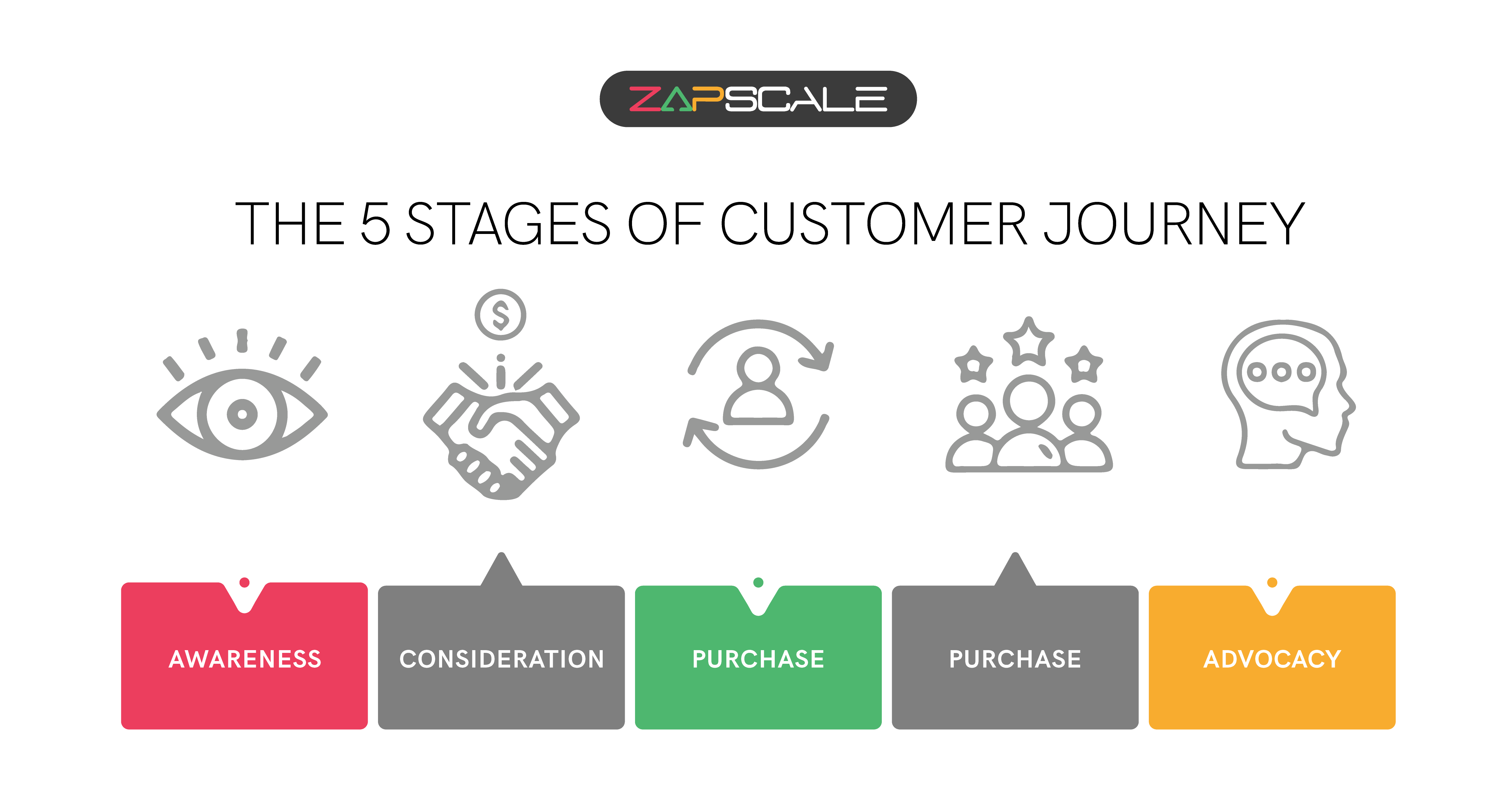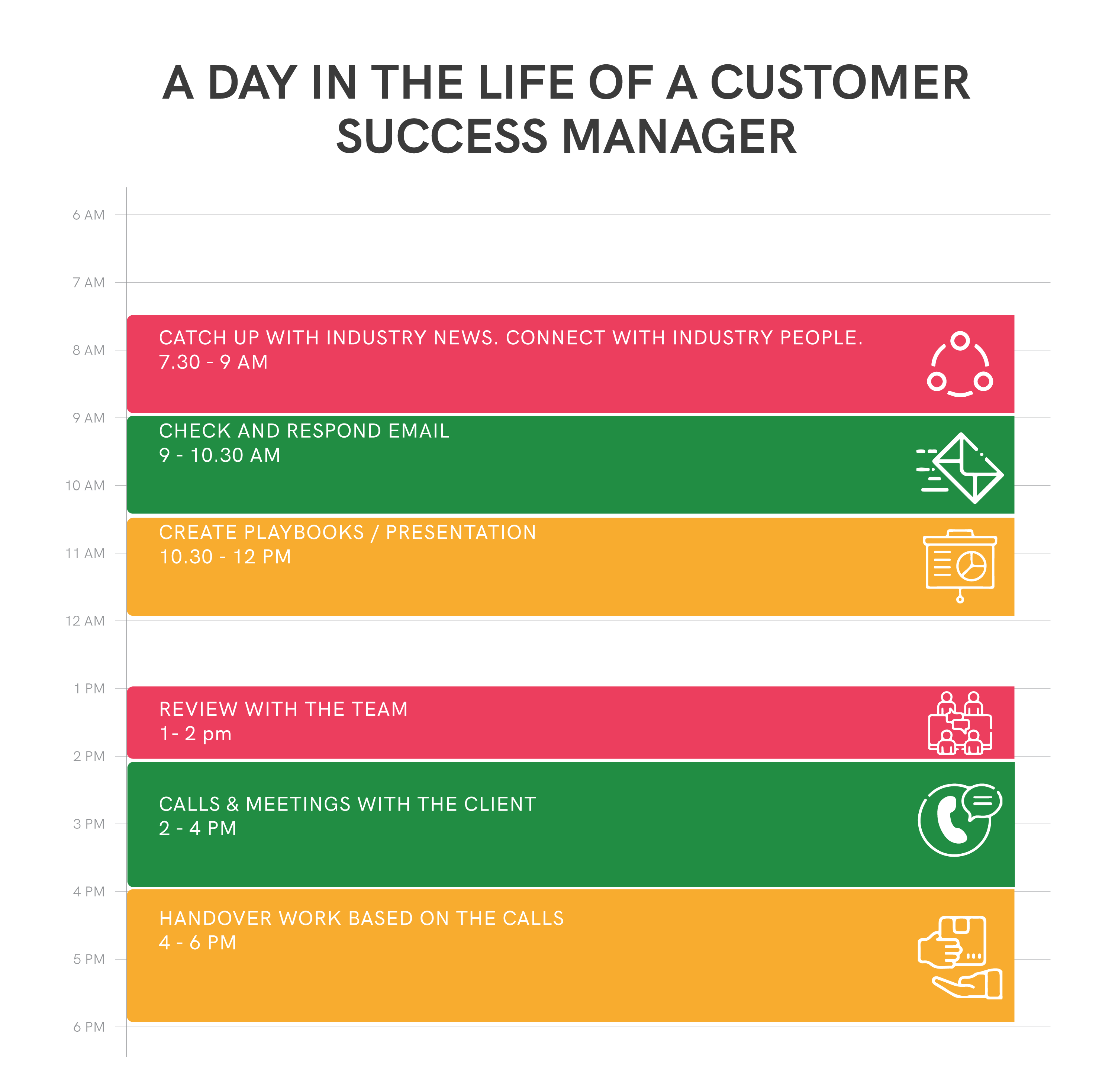CATEGORY > Customer Success Management
6 Vital Roles of a Customer Success Manager in a SaaS Company

The world of customer success has witnessed a significant shift in recent years, often leading to confusion or misconceptions regarding its role in comparison to other functions. Historically, determining the boundary between marketing and sales responsibilities, ownership of specific processes, and accountability for achieving certain targets has been a challenge. While progress has been made in addressing these issues, there are still steps to be taken.
In customer success, we find ourselves at the early stages of its evolution, necessitating further exploration and comprehension. To shed light on this subject, it is crucial to delve into the responsibilities of a Customer Success team and the specific role played by a customer success manager.
What is Customer Success?
Customer success refers to the strategic approach of guaranteeing that customers achieve their desired outcomes while utilizing your SaaS (Software-as-a-Service) solution. The primary objective of customer success is to manage the customer journey post-sales. In the image given below, I’ve listed 5 stages of the customer journey – the last 2 stages are when customer success kicks in.

These 2 stages are equally important for a SaaS business and by prioritizing customer success, organizations can deliver value and assist customers in maximizing the benefits they derive from the SaaS platform. This will ultimately result in the organic growth of the business.
What is a Customer Success Manager?
A Customer Success Manager (CSM) is a person responsible for ensuring that the customers of your company achieve their desired outcome along with a good experience while using your products or services. The main aim of a Customer Success Manager is to build strong and long-lasting relationships with customers by understanding their needs, addressing their problems, and helping them gain maximum value out of your product.
What does a customer success manager do in a SaaS company?
The role of a Customer Success Manager in a SaaS company encompasses various responsibilities aimed at overseeing a cross-functional team dedicated to ensuring customer success. Working directly with customers, their primary objective is to maximize the value customers derive from the product or service.
In addition to fostering customer satisfaction, a Customer Success Manager acts as a crucial link between the support and sales departments. A CSM leverages its product expertise and gathers customer feedback to enhance the overall experience. To excel in this position, a Customer Success Manager must possess:
- Deep knowledge of their SaaS product
- Understanding of the customer's unique needs and requirements
- Proactive orchestration skills to guide customers on their journey toward achieving their desired outcomes.
Fundamentally, a Customer Success Manager analyses both the customer's objectives and their own company's goals, strategizes the necessary steps, and takes action to ensure successful outcomes. Performance and success in this role rely on:
- Building strong relationships with customers
- Demonstrating excellent communication skills
- Paying meticulous attention to detail
- Exhibiting effective team leadership abilities
6 Key Responsibilities of a Customer Success Manager
The key role and responsibility of a Customer Success Manager (CSM) are to ensure the success and satisfaction of customers. Their primary goal is to help customers achieve their desired outcomes and maximize the value they derive from a product or service. Key responsibilities of a CSM typically include:
1. Effective Customer Onboarding
CSMs oversee the smooth onboarding process for new customers, guiding them through product implementation and providing necessary training and support to get them up and running effectively.
2. Relationship Management
CSMs build strong relationships with customers, serving as the main point of contact for addressing any questions, concerns, or issues that may arise. They proactively engage with customers to understand their needs, goals, and challenges, and provide ongoing support and guidance.
A strong customer relationship requires comprehensive visibility into customer data. This invaluable insight can be effectively achieved by leveraging a customer success platform. To delve deeper into the significance of customer visibility for Customer Success Managers (CSMs), I recommend reading our article "Customer Visibility: A vital pillar for Customer Success" on the subject.
In this article, I’ve discussed how harnessing customer data can empower CSMs to better understand and cater to the needs of their customers, leading to enhanced customer success and satisfaction.
3. Accelerating Adoption and Engagement
CSMs work closely with customers to ensure they are successfully adopting and utilizing the product. They provide guidance, best practices, and resources to help customers fully leverage the features and functionalities of the product. When it comes to monitoring and tracking product adoption, there are two main options: product analytical tools and Customer Success Platforms (CSPs).
To better understand the differences between these two approaches, I recommend checking out our informative infographic that provides a detailed comparison. This resource will help you make an informed decision on which solution best suits your needs and enable you to effectively track and optimize product adoption for the success of your customers.
4. Value Realization
CSMs assist customers in achieving their desired outcomes and realizing the value of the product or service. They collaborate with customers to identify and measure key success metrics, track progress, and provide recommendations for optimizing usage and achieving desired outcomes.
5. Driving Revenue Growth through Renewals and Expansion
CSMs play a vital role in customer retention strategy and growth. They work towards renewing customer contracts by demonstrating the value delivered and addressing any concerns. Additionally, CSMs identify expansion opportunities (upselling or cross-selling) for additional products or services that align with customer needs and goals.
6. Customer Advocacy
CSMs serve as advocates for customers within the organization, ensuring their feedback and requirements are effectively communicated to product, sales, and support teams. They actively seek opportunities to showcase customer success stories and foster customer loyalty and advocacy.
Overall, the key responsibility of a Customer Success Manager is to proactively engage with customers, understand their needs, drive value realization, and cultivate long-term, mutually beneficial relationships.
Since there is close working of customer success with support, there is a misconception about what each does.
To differentiate between Customer Success Managers (CSMs) and other roles like Customer Support Managers and Account Managers, it is important to understand their key distinctions.
Customer Success Manager vs. Customer Support Manager
While both CS and support teams assist their customers, there are notable differences.
- Customer success is more relationship-driven, strategic, and analytical, whereas support is more tactical and focused on immediate problem-solving without nurturing long-term relationships
- CSMs can leverage personal relationships to provide strategic guidance and contextual account expansions, renewals, upsells, and more, which support teams typically cannot do
- Customer success takes a proactive approach to preventing problems and solving them before they happen, while support teams often reactively respond to customer inquiries.
By understanding these key differences, organizations can better define the roles and responsibilities of their Customer Success Managers and Customer Support Managers, ensuring that each role contributes uniquely to the success of their customers and the company as a whole.
Skills Required To Be a Customer Success Manager
If you are looking to hire or apply for a CSM role here are a few things you should know. For a Customer Success Manager (CSM) to excel, possessing a range of essential soft skills and qualifications is crucial. These include:
- Leadership: Effective CSMs demonstrate strong leadership skills to drive customer success initiatives and expedite goal achievement.
- Problem-solving: As a CSM, a significant portion of your time will be dedicated to resolving users' obstacles and guiding them toward suitable solutions.
- Communication: Given the client-facing nature of the role, excellent communication skills are vital for effectively conveying information, building relationships, and performing well in the position.
- Empathy: Understanding your customers' perspectives and empathizing with their challenges is essential for building strong relationships and providing valuable support.
- Industry knowledge: To be truly helpful, it is important to familiarize yourself with your customers' business models, the latest industry trends, and common pain points they may encounter.
- Technical savviness: A deep understanding of your product or service is necessary to provide comprehensive guidance to users and ensure they are utilizing it optimally.
- Collaboration: The most successful customer success teams actively collaborate with sales, marketing, and support teams. Sharing data and insights between departments fosters a more holistic approach and enables the creation of thoughtful, tailored strategies.
By honing these soft skills and acquiring the necessary qualifications, you can enhance your performance as a CSM and effectively support your customers on their journey toward success.

Here is a typical day in a CSM’s life,

Customer Success Manager Salary
According to Glassdoor, the expected annual compensation range for a Customer Success Manager falls between $97,000 and $136,000, including both base salary and supplementary earnings. The typical base salary for a Customer Success Manager at Glassdoor is $102,000 annually.
In India, the median salary for Customer Success Professionals falls between ₹800,000 and ₹5,460,000, according to the Customer Success India Salary Report 2024 by leading CS Professional Ankit Aggarwal.
Conclusion
In conclusion, this article aimed to provide you with a comprehensive understanding of the responsibilities of customer success managers and their significant role in driving the growth of SaaS businesses.
By delving into their key responsibilities and unique contributions, I aimed to shed light on the vital role that customer success managers play in ensuring customer satisfaction, customer retention, and overall business success. I hope that this article has equipped you with valuable insights and actionable knowledge to leverage the potential of customer success management. Stay tuned for more!
ABOUT THE AUTHOR
Popular from Customer Success Management
Quality Content,
Straight To Your Inbox!
Subscribe for the latest blogs, podcasts, webinars, and events!

Write a Blog
If you have experience in CS and
a flair for writing, we’d love to
feature you.
Write to us on
hello@zapscale.com





